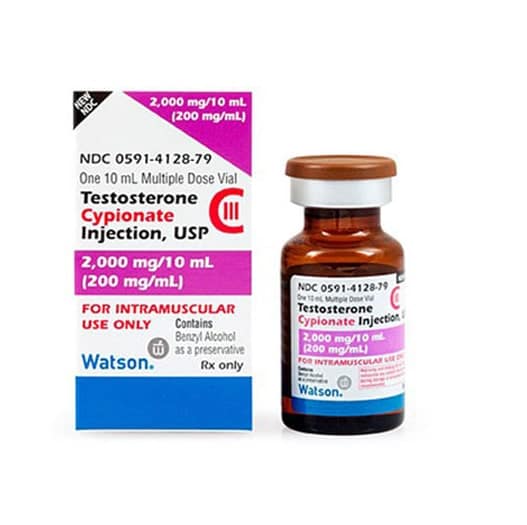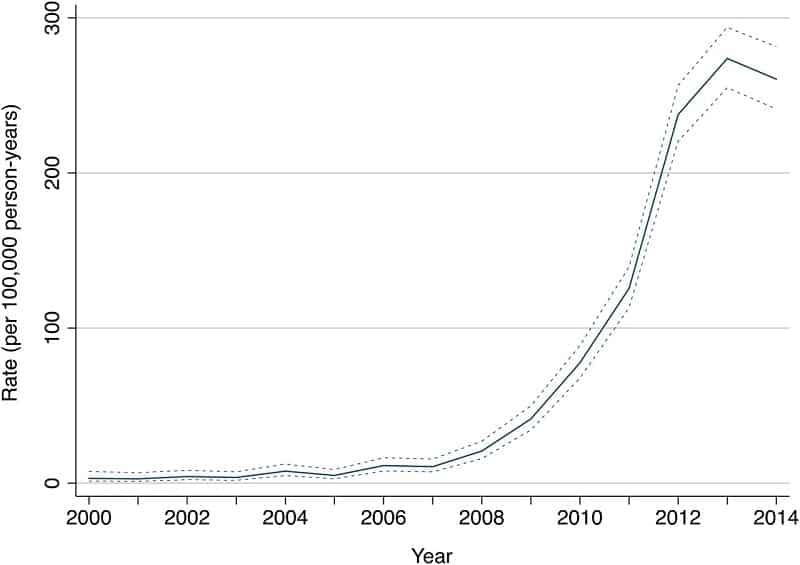
Do Vitamin D and Zinc Increase Testosterone Levels?
Table of Contents
As we will explore in detail here, a shockingly high percentage of American men who have a diagnosed testosterone deficiency also have low levels of vitamin D and/or zinc. You may be one of them.
Vitamin D and zinc are two essential nutrients that are necessary to maintain good health, including a healthy balance of hormones in the body.
Here, we will get into the biological mechanisms of action of vitamin D and zinc in the human body, how they support optimal testosterone levels, and the therapeutic strategies that men with low testosterone can use to safely up their levels of this pair of important nutrients.
What Is Vitamin D?
Vitamin D has been dubbed the “sunshine vitamin” because it is primarily sourced from sunlight, although it is also found in some foods. In addition to the main source of vitamin D, the sun, a handful of foods also supply vitamin D, including:
- Fish.
- Liver.
- Fortified dairy products.
- Mushrooms.
Through a complex process, the liver synthesizes vitamin D from UV rays (sunlight) or diet into calcifediol (sometimes called calcidiol). Calcifediol is often abbreviated as 25(OH)D3.
The chart below documents the rise in verified cases of vitamin D deficiency in the US:
As a regulator of hormonal function, adequate amounts of vitamin D in the blood are essential for fostering proper levels of various hormones, including testosterone.
Vitamin D Deficiency: A Serious Public Health Issue
Vitamin D deficiency is a serious problem across the developed world, including in the United States. At least half of the US population is deficient in vitamin D, although some estimates on the far end of the spectrum place that figure at closer to 90%.
Whether the spike is due to increased testing or due to a true uptick in vitamin D deficiency in the US population, the rate of diagnosis for deficiencies among Americans has increased dramatically in recent years.
The underlying causes of vitamin D deficiency in the population have been identified as:
- Limited exposure to sunlight.
- Certain medications.
- Inadequate dietary intake of vitamin D-rich foods.
- Darker skin pigmentation (for non-Caucasians).
- Impaired metabolic health (poor nutrient processing).
Accordingly, certain groups have a greater personal risk of developing a vitamin D deficiency than others. These groups include office workers, populations living at northern altitudes, the elderly, and people of color.
What Role Does Vitamin D Play in Maintaining Good Health?
Vitamin D supplies the following health benefits in the human body:
- Balances electrolytes.
- Protects DNA and regulates DNA transcription.
- Facilitates intracellular signaling.
- Boosts mental health. Individuals with low vitamin D levels are significantly more likely to show the clinical signs of anxiety and/or depression.
- Protects bone strength.
- Positively modulates immune function.
- Maintains hormonal balance.
- Promotes good sexual and reproductive health. Men with higher levels of vitamin D also have higher levels of testosterone.
What Is Zinc?
Next to iron, zinc is the most prevalent mineral in the human body. Most nutritional experts recommend between 8-11 milligrams of zinc per day. However, for people with low levels, higher zinc intake through supplementation may be necessary to achieve ideal concentrations in the blood.
The optimal concentration of zinc in the blood is 0.66-1.10 micrograms per milliliter (mcg/mL).
Too much zinc in the blood can be as harmful to human health as too little; Prolonged and excessive consumption of zinc (more than 50mg per day) can lead to a serious condition called zinc toxicity. Accordingly, you should always practice zinc supplementation with caution. Regularly testing your zinc levels is ideal when supplementing.
What Role Does Zinc Play in Maintaining Good Health?
Zinc contributes to a large number of physiological processes that are integral to maintaining good health. In the body, zinc performs the following functions:
- Facilitates faster, more complete wound healing.
- Boosts immune system. In fact, studies have shown that zinc may neutralize coronavirus infections (such as COVID-19) by preventing the virus from reproducing inside the cell.
Researchers have found that infected individuals with higher zinc levels have a significantly lower risk of in-hospital death due to COVID-19 compared to those with insufficient levels. - Supports optimal enzyme function.
- Promotes a quicker metabolism.
- Regulates DNA synthesis.
Fights anxiety, depression, mood disorders, and other mental health conditions. The chart below, for example, shows the results of one study in which zinc was administered to patients with anxiety disorders.
As the data indicates, individuals who received zinc supplementation showed a concurrent improvement in zinc levels and a decrease in anxiety-related symptoms. In addition to the above activities in the body, zinc supports healthy testosterone levels. Read on to discover how in an upcoming section.
Zinc Deficiency in the Global Population
Although zinc deficiency is not as common among US adults as vitamin D deficiency, experts estimate that around 17% of the global population suffers from poor or sub-optimal zinc levels. The graphic below indicates the occurrence of deficient zinc intake by country.
Again, zinc deficiency is a much larger public health issue in developing regions of Asia and Africa than in the United States. Nonetheless, roughly 12% of the US population is at risk of developing a zinc deficiency.
Testosterone: The Vital Male Sex Hormone
Testosterone, produced primarily in the testes in men, is the primary male sex hormone that is responsible for anabolic muscle growth, sex drive, and secondary male sexual characteristics that develop in puberty. Over his lifespan, the typical man will experience a steady drop-off in testosterone levels. This can lead to a number of negative health effects.

The Negative Health Effects of Low Testosterone Levels
Inadequate testosterone levels can be devastating for men’s physical, mental, and sexual health. The harmful impacts of low testosterone in men can include but are not limited to:
- Inability to sleep (insomnia).
- Muscle loss and weakening.
- Bone density loss and weakening (eventually leading to osteoporosis).
- Chronic fatigue (low energy).
- Testicular shrinking (atrophy).
- Loss of secondary sexual characteristics such as facial and body hair.
- Breast development (gynecomastia).
- Mental health deterioration (higher rates of depression and anxiety).
- Lowered sexual desire (low libido).
Testosterone, Zinc, and Vitamin D: What Are the Connections?
The amount of bioavailable “free” testosterone (the most important marker of hormone health for aging men) is directly tied to the levels of both zinc and vitamin D. Here is everything that you need to know about the relationships between vitamin D, zinc, and testosterone levels in the blood.
If you are a man over 30 with the telltale signs of a testosterone deficiency that we discussed earlier, chances are high that you also have a concurrent vitamin D deficiency.
The Health Benefits of Elevated Testosterone Levels Following Zinc and Vitamin D Supplementation
If you have a zinc and/or vitamin D deficiency (as millions of American men), zinc and/or vitamin D supplementation are proven strategies to counter the harmful health effects, including reductions in testosterone levels. For these men, testosterone levels rebound following the increases in zinc and vitamin D levels achieved through supplementation.
Men with testosterone deficiencies reap an array of significant health benefits from higher testosterone levels, including:
- Better working memory and cognitive processing.
- Vastly improved mental health (reductions in the occurrence or severity of depressive disorders, anxiety, etc.)
- Elevated energy levels.
- Decreased risk of neurodegenerative disease (i.e., Parkinson’s, Alzheimer’s, and other forms of age-relate cognitive decline).
- Reduced risk of heart disease.
- Renewed interest in sex.
- Greater drive (motivation).
- Less frequent/intense joint pain.
- Optimized athletic performance (stamina, coordination, and strength).
- Greater lean muscle mass.
- Fat loss.
The ultimate takeaway is that improving testosterone levels can take decades off of a man’s physical appearance and restore the type of boundless energy and sexual vitality of a young man in his 20s.
The men who receive testosterone replacement therapy (TRT) – and, when necessary, complementary therapies such as zinc and vitamin D supplementation – report looking and feeling 20 years younger or more.


